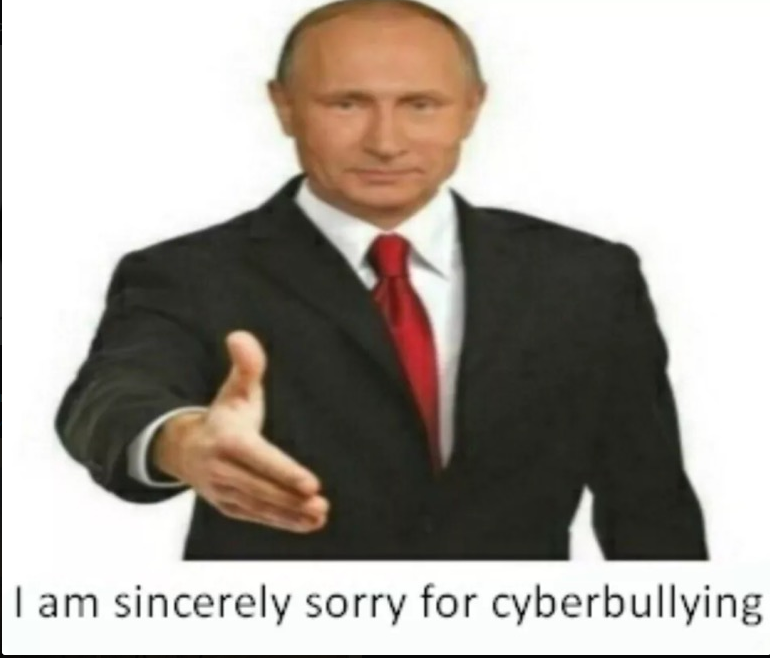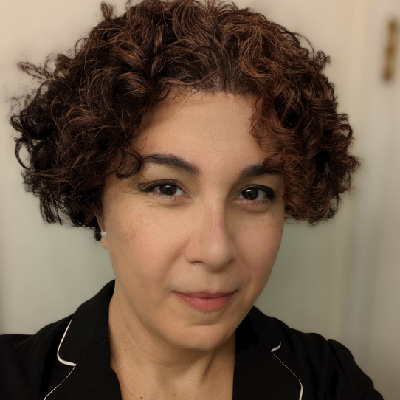- cross-posted to:
- [email protected]
- cross-posted to:
- [email protected]
Some truly interesting perspectives in this guy’s story. I’m pretty conscious of some of this stuff as I raise two boys.
The bathroom and handshake things are real. Some things are more nuanced like the office admin stuff.
The diet one is new and baffling though. There’s definitely office banter about food. I haven’t ever been aware of it being gender based, though.
People often misinterpret privilege as a sense that the privileged person’s life is amazing. To me, it is the absence of certain adversities or obstacles faced by other groups of people.
This is so important, and so poorly understood by many people who aren’t heavily involved in intersectional discourse. It’s what leads to people claiming there’s no such thing as privilege because their own experience as a working class white cishet male hasn’t been spectacular. And of course this misunderstanding isn’t helped by a deliberate attempt to suppression the correct understanding of what privilege means by the right.
This is going to be a controversial take, but I believe this confusion comes from applying the wrong word to the concept being conveyed. The word “privelege” means to grant an advantage/immunity to an individual above the usual rights/advangates people get. I acknowledge that language evolves and the word privelege can evolve to mean a lack of impediments that some people suffer under. But that sort of evolution usually takes generations.
There’s a perspective matter at play as well: If the “baseline” rights and advantages of “usual” are somewhere below what “joe average” white man gets, then Joe isn’t average any more. And that’s a perspective shift we need the whole population to acknowledge.
Personally, I’m fine with acknowledging that I don’t suffer the impediments of race or gender that many people do. I suffered under different impediments though: As a kid I was very small, not really having my teenage growth spurt until after I left school. I was also poor. These impediments, while not related to race or gender were no less real. Growing up, I sure didn’t feel priveleged. Does a gay, financially secure black girl feel priveleged? I recognise that today, I am priveleged the way that term is applied in modern discourse. I am also neither short, nor poor any longer. But for all that, I still feel like “joe average”.
I can see how telling a white man who is burdened with some sort of impediment that he’s “priveleged” because he doesn’t suffer under the impediments you suffer is going to be a hard-sell. I believe we’d all be better served with a different word to convey this concept. We already acknowledge that the current term of “privelege” is misinterpreted and misunderstood. I am not smart nor connected enough to come up with a new word and spread it, though.
Your third paragraph is a perfect example of why it’s so important to talk about these things intersectionally. Because yup, there is definitely a “tall privilege” for people who are taller, and a “pretty privilege” for people who are more conventionally attractive. And the privilege of wealth and class are the most obvious and intense of all. And anyone can have any combination of different privileges, gaining an advantage or not in any number of hundreds of different aspects of life.
Could there be a better word used? I dunno, maybe. I’m reminded of arguments around things like “defund the police”. The argument is that even if the term isn’t literally the most accurate, it gets across the broad message in a pithy way that’s much easier to spread. In the case of privilege, I believe it may be an academic term that has breached the containment of academia and is being unfortunately used among a public that doesn’t have the necessary on-ramping to understand what it means with context. Like what happened to “critical race theory”.
It would be wrong to tell someone in the broad sense that they “are privileged”. Instead, a person may have formed a specific opinion due to their privilege. To use some examples from this article, a man might not understand how it can feel unsafe to walk at night due to his male privilege. A woman might not understand men’s inability to express emotion due to female privilege. For what should be obvious reasons, some kinds of privilege are more significant in more areas of life than others, so the line can get fuzzy when it comes to whether saying someone has privilege is appropriate. But it’s still worth paying attention to.
@Zagorath @Nath when your language switched from describing “a woman” to “female”, I found myself reacting to those terms. It’s none of my business really. Though I want to say two things. One, that a woman can experience privilege, but a female not so much. That is, female is an attribute, and as such is completely inadequate to describe a woman, who has much more than just one attribute. The second thing is that privilege relates to the experience of life, where the subject of the privilege does not encounter a particular struggle. Not only that, because they never encounter it, they aren’t even aware that someone else might do. Tall people know they are tall. How can you know what someone has experienced, unless you know them well? How many privileged people can you say you know that well? Not only that, it’s probably likely perceived as a pejorative, because it points out what someone else doesn’t know. I don’t necessarily agree with the academic containment bit. Though I think you make some good points.
when your language switched from describing “a woman” to “female”
Sorry, did I do that? I thought I (certainly, it was my intent to) only used female in the sense of as an adjective. Describing “female privilege” as a counterpart to the “male privilege” which is much more talked about (and far, far more prevalent).
I think you’re wrong to claim that the word female can only be used as an “attribute”. But I would say that one should only use it that way, because it’s kinda gross and reductive to use it as a noun. Which is why I tried to avoid doing that.
@Zagorath it’s a fairly common usage. Though ‘male privilege’ has the same problem. Referring to a category of privilege as if maleness is it’s only attribute, is generalised and problematic. It’s quite different from saying “privilege that men tend to have”. Calling it male privilege, has an implicit catch-all. The term is describing social categories, as if they are discrete groups, where as in reality what each person is aware of forms more of a spectrum. I think it’s problematic because it diverts from the intent of the distinction, which is to highlight the privilege, rather than who necessarily has it. Anyway, like I say it’s a fairly common usage, I’m not singling you out. I just reacted to that form of language.
Oh gosh, I think you just put your finger on something really important at the intersection of a few different parts of the conversation about privilege!
(Pardon me, I’m having a moment.)
There’s that anecdote (I wish I had the source!) about how when a white woman looks in the mirror she sees a woman, but when a Black woman looks in the mirror, she sees a Black woman.
…
And so, when a white woman thinks about privilege, because she doesn’t see her own race (since she is the societal “default”) she only thinks about the ways men are given advantages over her.
Whereas the Black woman also sees the way that white women and men of all races are given advantages.
And a disabled, queer Black woman… you get the picture.
So “privileged relative to what?” is based entirely on the individual’s experience and perspective 🙃
…
And this is obviously BAD because it means any time you talk to a straight, able-bodied white man who hasn’t actively unpacked all of this about privilege, he’s immediately going to think about all the ways he’s disadvantaged relative to his own baseline, which is, what? Tall, handsome, rich white men.
When you mention privilege, he feels attacked because he immediately thinks of all the ways in which he lacks it, not the ways he has it.
…
This dovetails with the “I didn’t notice the sexism therefore it didn’t happen” problem - he’s probably not tuned into the difficulties people lower on the pecking order experience at all.
He has no realistic baseline.
It doesn’t excuse his ignorance, but it *does* explain why, from a political standpoint, starting the conversation with privilege *rather than* starting with the challenges faced by other people might be a poor approach, because it engenders defensiveness.
…
…and perhaps, none of us have a realistic baseline. I certainly don’t have firsthand knowledge of every way to be marginalized!
However, I still think “privilege” when applied correctly is a useful construct. I need to mull this over more in my head to figure out how and when, though. Like, what is the approach that is actually gonna change hearts and minds (or sway organizations struggling with this stuff)?
Thanks for letting me ramble in your mentions.
Yes. The way I was first taught about privilege, begins with saying that everyone has some ways in which they are privileged in some ways in which they are not
And a little exercise, where everyone in the room thinks about the ways in which they are not privileged. Because those always come to our mind more easily than the ways in which we are privileged!
The ways in which we are, that is the second exercise
deleted by creator
deleted by creator
deleted by creator
No it’s a well-studied woman thing.
“… women tend to be underestimated more. They tend to be interrupted, more talked over more. They have to prove their competence more and we often feel uncomfortable when they’re in positions of authority.” https://www.forbes.com/sites/michelleking/2021/10/26/the-authority-gap-why-women-are-still-taken-less-seriously-than-men/?sh=3ed8223e634d
That doesn’t inherently discredit the idea that going from a child to an adult would not also contribute; people who wouldn’t do that to a woman VS a man could still do it to a child, for example
Oh dude I went the other way as an adult. I have a deep voice and I’m tall so I’m pretty obviously trans.
Even so people went from just default listening to me and taking my ideas seriously to just ignoring me half the time. It’s most egregious with strangers, if I speak about anything technical people often overrule say my opinion on something physics (An area I’m pretty knowledgable in and relatively good at communicating) for some half remembered anecdote some man told them, previously they’d be like “Oh wow that’s interesting, I always thought X” or something far more indicative that they listened.
I’m pretty obviously trans.
That could be enough maybe? Anyone who is perceived as “strange” gets second hand citizenship, even if it’s subtle.
Nah it happens even when I keep my mouth shut. Like men just look past you when looking for answers, people in shops will just ask a guy you’re with what they want etc. Hell when I worked IT and people only knew my email signature I’d get the “can I get a man/someone more senior/an it specialist to look at this” after I’d give my opinion.
deleted by creator
Yeah, it’s pretty clear we live in a very sexist society. I think when people who aren’t exposed to gender equality movements much hear that they think it’s a claim of rabid misogyny. It’s not that though, most people aren’t frothing at the mouth to say how shit women are (although we have a particularly nasty problem with domestic violence which is quite violent), it manifests in ways such as:
- finding women more annoying than men exhibiting the same behaviour
- speaking over women without even noticing they’ve talked
- requiring higher standards of evidence for statements made by women
- not actively seeking out the opinions of women in conversation in favour of giving attention to men
- demanding women adopt masculine mannerisms and socialisation to be taken seriously
It catches men in the crossfire too, men who fail to meet masculine standards are discounted. Think about short men, or men with higher pitched soft voices etc.
It’s frustrating and why it’s not enough to just try not be sexist, but to be specifically anti sexist. That is, to make a point of compensating for biases you probably don’t want to express but were likely conditioned into expressing as a child in order to approach something more like truly fair treatment.
deleted by creator
deleted by creator
The part where the women was looking back over her shoulder at him and he turned around to check if someone was following them made me laugh.
This is the best summary I could come up with:
This is a glaring contrast to women’s public bathrooms, which can feel like stepping into a feminist support group.
The chatter, the laughter, the occasional tears and waves of support for those crying makes for a heartening sense of camaraderie and solidarity.
It turns out that’s how many men shake hands with each other — and I had a steep learning curve ahead to perfect this ritual.
If you have a feminine-sounding voice, it can lead to an onslaught of verbal abuse, harassment and misogyny from players online.
As a woman, you’re made constantly aware of how much sound you’re making where it seems that men aren’t conditioned to be attuned to that at all.
At work I’m no longer asked, or expected, to organise gifts for farewells or birthdays, morning teas or lunches, or plans like booking meeting rooms, sending invites, taking minutes or extra administrative tasks.
The original article contains 1,494 words, the summary contains 148 words. Saved 90%. I’m a bot and I’m open source!










